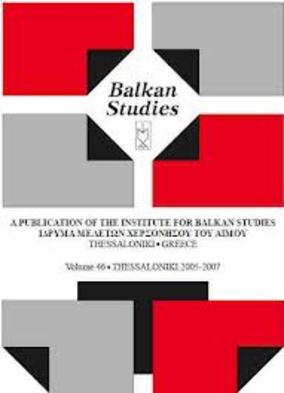A loveless entanglement : Britain and Bulgar-Yugoslav relations 1924-1943
Part of : Balkan studies : biannual publication of the Institute for Balkan Studies ; Vol.39, No.1, 1998, pages 123-146
Issue:
Pages:
123-146
Section Title:
Articles
Author:
Abstract:
This article sets out to explore British policy towards Bulgar-Yugoslavrelations over a period of peace and war in the Balkans, and to assess thebasic assumptions and debates within the Foreign Office which shaped it.Forced by necessity, not choice, the British took an active interest in theMacedonian Question, although their only vital interest in the area was thepreservation of the status quo. No matter how imperfect it was, it afforded theonly hope for peace. Consequently, they tried to prevent a “hot” incident andto keep the issue out of the League of Nations. However, political expediencywas assisted by “ethnography”. For the Foreign Office, the Macedonians hadno “national” consciousness and therefore they should remain under Serbianrule, a convenient but sincerely held view. From the mid-1930s the prospect ofa Bulgar-Yugoslav federation was also discussed. After some debate, it wasconcluded that such a scheme was dangerous and undesirable. Instead, theBritish proposed an all-Balkan federation, a non-practical proposition whichcollapsed under Russian hostility and Balkan indifference. Although theynever materialised, the British plans on Bulgar-Yugoslav relations enabledthem to reach firm conclusions, which dictated their actions in the winter of1944-1945.
Subject:
Subject (LC):
Keywords:
Britain and Bulgar-Yugoslav relations 1924-1943
Notes:
This article is based on the author’s Bulgar-Yugoslav Controversy over Macedoniaand the British Connection, 1939-1949, (unpublished D. Phil thesis, Oxford University,1996).




